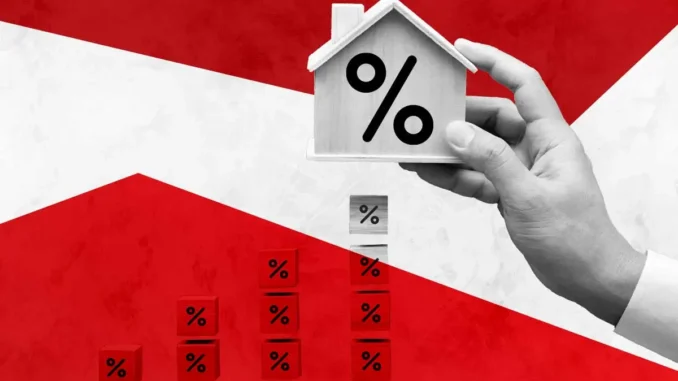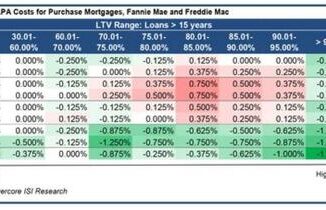
Federal Reserve Chairman Jerome Powell sent a clear message during his U.S. Senate speech on Tuesday morning: Fed officials are likely to deliver higher rate hikes than previously expected to combat persistent inflation.
“As I mentioned, the latest economic data have come in stronger than expected, which suggests that the ultimate level of interest rates is likely to be higher than previously anticipated,” Powell said. “If the totality of the data were to indicate that faster tightening is warranted, we would be prepared to increase the pace of rate hikes. Restoring price stability will likely require we maintain a restrictive stance of monetary policy for some time.”
Powell’s speech had an immediate impact on the mortgage market. Interest rates on home loans, which were already ticking upward, jumped last week, and it’s adding affordability challenges to the market.
Freddie Mac‘s Primary Mortgage Market Survey (PMMS) showed the 30-year fixed-rate mortgage averaged 6.73% as of March 9, up eight basis points from last week’s 6.65%. A year ago at this time, the same rate averaged 3.85%.
Other indexes show rates even higher. At HousingWire’s Mortgage Rates Center, updated daily based on data from Optimal Blue, the 30-year conforming mortgage rate was at 6.84% on March 8, compared to 6.72% the previous Wednesday. Jumbo loans increased to 6.79% from 6.78% in the same period.
Mortgage News Daily showed the 30-year conventional at 7.05% as of Thursday afternoon.
“While last month Fed officials said that a smaller increase in the federal-fund rates would help create a soft landing for the economy, Powell’s testimony on Tuesday made it clear that the central bank is prepared to return to a faster pace of rate increases if the incoming February economic indicators remain strong,” Jiayi Xu, Realtor.com economist, said in a statement.
Powell’s speech was enough to prompt the expectation that Fed officials will raise the federal funds rate by 50 basis points in its next meeting, scheduled for March 20-21, which is higher than the 25 bps hike delivered in early February.
The housing market
Sam Khater, Freddie Mac’s chief economist, said that mortgage rates continue their upward trajectory as the Fed signals a more aggressive stance on monetary policy, leading to challenges for homebuyers.
“Overall, consumers are spending in sectors that are not interest rate sensitive, such as travel and dining out. However, rate-sensitive sectors, such as housing, continue to be adversely affected. As a result, would-be homebuyers continue to face the compounding challenges of affordability and low inventory,” Khater said.
Meanwhile, according to Xu, sellers are facing an increasing number of unsold homes, longer time on the market and decelerating price growth. But there are still opportunities to be found, the economist said.
“For example, recent sales data show that the share of first-time homebuyers is up compared to one year ago. As a result, sellers with starter homes may see robust demand and retain some bargaining power,” Xu said.
The economist added that sellers who are also buyers can leverage their record-high equity, even if they have to adjust their expectations to lower asking prices.



